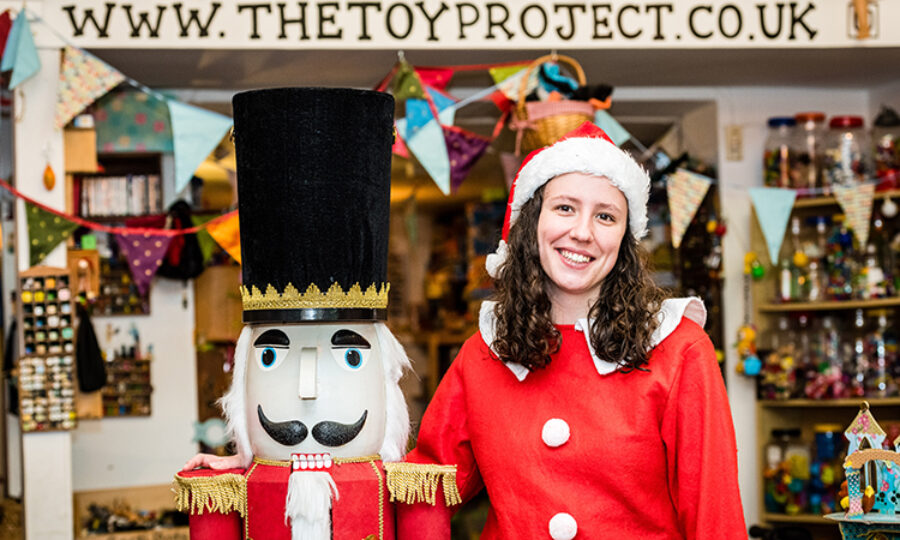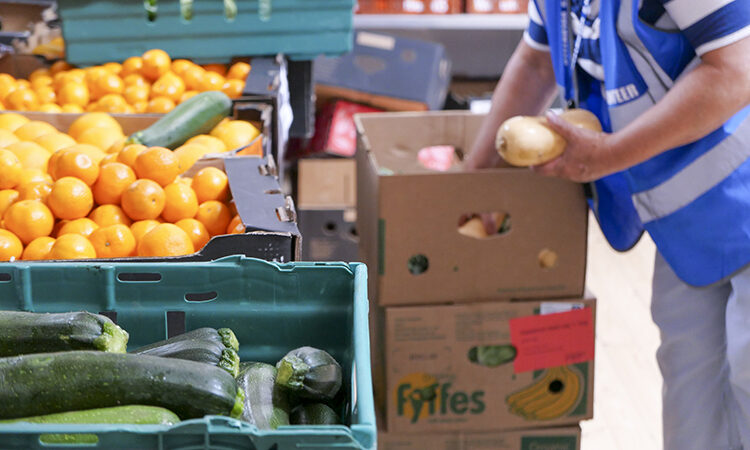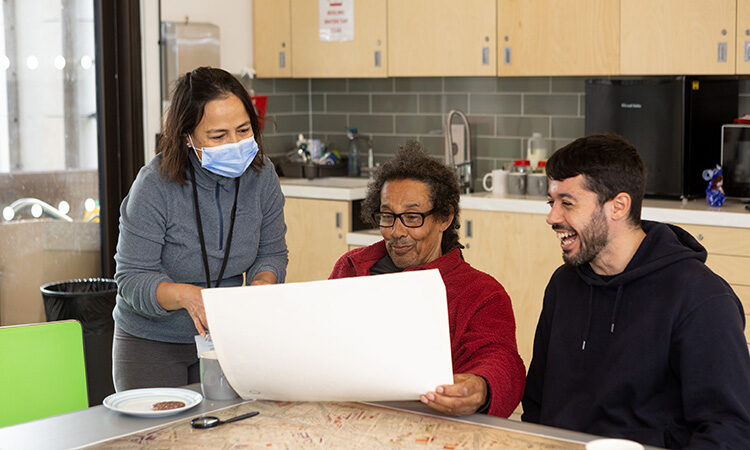Christmas angels

We pay a visit to Age UK Islington, Islington Giving, Manor Gardens and The Toy Project to find out how they and the rest of Islington’s volunteers are gearing up to support people – this Christmas, and beyond
Spend any amount of time speaking to staff and volunteers in Islington’s voluntary and community groups, and one thing will become clear: they’re all part of an informal alliance, fuelled by a genuine desire to support the community. In these hard times, they’re not floundering; they’re galvanised.
“It builds on the camaraderie developed through the Covid crisis,” says Lisa Robinson, director of development and communications at Islington Giving: a coalition of funders, residents and charity partners that supports local projects and organisations in Islington. “Our local voluntary groups work genuinely tirelessly to provide support for people as best they can. We are so lucky in Islington to have such a connected, collaborative, vibrant voluntary sector. The fact that it’s needed is obviously disappointing in 2022 and in one of the wealthiest countries in the world, but the fact that we are working together to provide that support is huge testament to the collaborative spirit we have in Islington.”
For Islington Giving, that means spotting a need – most recently for emergency financial help – and taking action. “The Crisis Appeal we’re running is a fund that we are distributing via local partners – places such as Help on Your Doorstep and Age UK Islington,” Lisa continues. “They will be giving local people grants, as well as support and advice, as they’re on the frontline.”

For Manor Gardens, it means opening up a warm, communal space where people can come for a hot drink and a bowl of soup. “People can talk to other residents, or just sit down and read the paper. There’s a friendly atmosphere,” explains project lead Milena Rola. “We are open to everyone. If someone needs help, you can come here, and we will do what we can.” As well as a warm space, Manor Gardens runs regular weekly activities, such as conversation cafes, support groups and women’s groups. “We have coffee mornings every week, with a mix of regulars and new people. At the beginning, they were coming here to talk to staff, whereas now, people really talk to each other. We’re like a family: people get to know each other. It’s a hub.”
Since Covid, unfortunately, the need to create spaces for people to get together has only increased. Age UK Islington is also working hard to reach those who might be socially isolated or experiencing loneliness. “That’s an ongoing thing for us,” explains chief executive Sally Miller. “People are living longer and older people are more isolated. Children and grandchildren might move away, so they don’t necessarily have family in the area. Sometimes people don’t know what to do in that situation.” It’s not only elderly people, either – “it’s all older adults, which we count as aged 50-plus, and even those aged 30 to 50 have real isolation issues. If you don’t fit into the typical set-up of being married or having kids, you don’t have a network. That age group is left wanting.”

One of the many services Age UK Islington provides to help tackle this is social prescribing. This involves GPs referring people who might be feeling low to a link worker. “They’ll ask you what you enjoy doing, then the link worker would look for organisations and activities taking place nearby that might help boost their mood and feel more positive,” Sally explains. Age UK also partners with The Toy Project, which runs Lego lunches for people aged 50-plus at their playroom in Archway: a safe and calm space to enjoy building and socialising, plus a free lunch. “We cover the whole community, running play and community sessions practically every day of the week, free of charge,” explains business manager Lilly. “Activities range from baby singing and after school sessions, to Spanish, yoga and knitting. We run Lego therapy sessions for children with social and communication needs, too.”
The Toy Project also provides toys to children from vulnerable families, as well as schools, nurseries, hospitals, hospices and some overseas charities – and the Islington Christmas lights. If you picked up something from Santa at one of the recent events, it was likely kindly donated and wrapped by the Toy Project. “We work to make sure that play is accessible for everybody, and we achieve that through the recycling of toys.” The benefits of this are threefold: toys are saved from landfill, benefitting the environment; people have access to decent toys at an affordable rate, through The Toy Project shop; and all the profits go to running the sessions described above. “These things don’t biodegrade quickly – the Lego brick for example, is designed to be indestructible, because they don’t want it to break. The most eco-friendly way to have and use Lego is to reuse it consistently, which is what we do.” That’s one thing ticked off the Christmas shopping list.
